Two separate book reviews follow
 I like this book very much. The author begins with the story of her experience with an abusive husband, followed by involvement with men who have various sexual addictions, and how the Lord led her even when she did not know or desire it.
I like this book very much. The author begins with the story of her experience with an abusive husband, followed by involvement with men who have various sexual addictions, and how the Lord led her even when she did not know or desire it.
The Lord has not given me the liberty to give counsel outside of the parameters he has set forth in his Word.
This is series of letters to wives whose husbands are caught up in various sexual sin and perversion, from pornography to bestiality and just about everything in between. Gallagher consistently uses God’s word to warn, comfort, encourage, and advise these wives depending upon their situation. I especially like that she does not promote divorce, but sometimes advises separation with the hope of reconciliation.
Some of the subjects she addresses are: Dealing with Suspicion, The Unrepentant Husband, Dealing with Fear, Feeling Betrayed, and many more.
There are 56 letters in the book, most of which are two pages or less in length.
I would highly recommend this book, but caution the reader to read all the letters, not just those that tell you what you want to hear. You may take a letter that encourages one woman to leave her marriage and use that as an excuse to file for divorce, when your situation is completely different from the wife in the letter.
Gallagher states in her introduction that you can “find many books which, in the name of Christian love, give an alternative to those…in Scripture. The Lord has not given me the liberty to give counsel outside of the parameters he has set forth in his Word.” She carries through with that position throughout the book.
When His Secret Sin Breaks Your Heart by Kathy Gallagher
Reviewer: Joan Garrity
Date: March 2015
The key to his living victoriously is faithfulness and endurance.
Kathy Gallagher is a woman whose husband was not only addicted to porn, but addicted to other sexual sins as well. Steve, her husband, would often hire prostitutes while Kathy was working in addition to his porn addiction. Since then, Steve has left that life style, and he and Kathy have set up Pure Life Ministries. This ministry is geared toward counseling men who have sexual addictions along with counseling the hurting wife.
Though I was looking forward to this book, I did not care for it. The author claims in the opening pages that the purpose of this book “is to provide the hurting wife, with solid, biblical answers and practical solutions to everyday problems associated with being married to a man in sexual sins.” She does give practical solutions to everyday problems, but her biblical answers are not great.
The book is a compilation of response letters from the author to hurting wives who have written her letters. The reader does not see what the hurting wife has written, only the topic and the author’s response. Which presents a problem: not every chapter will relate to the reader. Not only that, but how can the reader know which chapter applies to her life? The author admits this saying, “As you read these letters you will find some that seem to encourage you along a path you have been taking that isn’t right. Let me explain…Perhaps you are weak, beaten down and would rather forget that you just discovered your husband is in adultery. You need the encouragement to be strong for your husband, as outlined in the letters to Judy and Robin. You wouldn’t want to follow the advice found in the letter to Kelly who wants to police every move of her husband.” Some of the chapters may never apply to a certain individual.
The motivation for change is also a problem as it was not focused on the gospel. She encourages the wife to be there for her husband a lot, but does not give the hurting wife encouragement that Jesus has paid for his sins. Throughout the whole book there are only a handful of times when the author makes mention of Jesus’ death on the cross for either a husband or a hurting wife. Even in sections encouraging the wife to forgive her husband she says, “…you can be free from your self-made prison today if you choose to repent of the hatred that has consumed your heart and then allow Christ to love your husband through you. Seems pretty impossible, huh? Not so! The reason you can do this is because Jesus showed us how.”
Throughout the whole book, the emphasis is primarily on what we do. She often says your husband can overcome his sexual sins, yet does not motivate him through the gospel. Rather she puts the emphasis on the husband, “The key to his living victoriously is faithfulness and endurance. If he remains diligent and chooses to do those things God has shown him, he will make it!” Even with the ministry they have going on at Pure Life Ministries, she does not give the gospel any reason for the change in men from their sexual sins. “But I am convinced, that there isn’t a sincere man alive, who couldn’t overcome his sin at the Pure Life live-in program. I say this because everything he needs to find victory is made available to him: a godly environment, counselors who have been there and who offer wisdom to overcome life-dominating sin, tight accountability, and most of all, a heightened sense of the presence of God.”
She does give some good practical advice that could benefit many different women whose husbands are dealing with sexual sins. However, there are so many different situations it might be hard for the reader to know which ones she should apply to herself and which ones she should not.
In her own story in the introduction, she makes a big deal of the Lord speaking to her, her husband, Steve, and her parents about what to do. This carries over to some of her letters where she tells the recipient to pray and listen for God’s guidance and he will tell the recipient what to do. In fact, she thinks that feelings are sometimes divinely inspired, “How do you know if your misgivings are rooted in fear and influenced by the devil or if they are based upon fact and divinely inspired.” That is a slippery slope to be heading down.
Overall, there were a few gems here and there, but it was mostly not good. Knowing that the only thing that changes hearts is hearing that Christ loves you so much that he laid down his life for you, I cannot recommend this book. Not when the main emphasis is on us with a splash of God will give you the strength to change.
When His Secret Sin Breaks Your Heart by Kathy Gallagher
Reviewer: Stephen Apt
Date: April 2015
 This book attempts to cover sexual and emotional issues effecting women. It’s easy to read and deals with sound principles based on Scripture. The book emphasizes that women struggle with sexual sins just as men do, but in different ways. The author points to the daily need to fight to live as children of God.
This book attempts to cover sexual and emotional issues effecting women. It’s easy to read and deals with sound principles based on Scripture. The book emphasizes that women struggle with sexual sins just as men do, but in different ways. The author points to the daily need to fight to live as children of God.
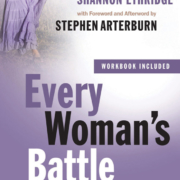
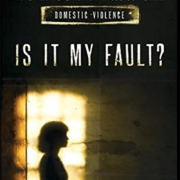
 The book begins by defining abuse as “not necessarily physical.” Emotional abuse can be just as damaging – and at times more so. Ethicist Wolfgang Huber argues that “violence is better defined as the intent to hurt or torture, more than physical injury. Violence is the unrelenting assault on human dignity.”
The book begins by defining abuse as “not necessarily physical.” Emotional abuse can be just as damaging – and at times more so. Ethicist Wolfgang Huber argues that “violence is better defined as the intent to hurt or torture, more than physical injury. Violence is the unrelenting assault on human dignity.”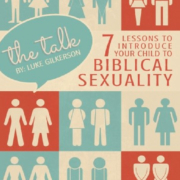
 The Talk is an excellent resource that provides a step-by-step, biblically-based approach to talking with your children about sexuality. In our sexually saturated culture, our children are in danger of being introduced to sexual misinformation and secularized values about sex at a very early age. Luke Gilkerson wisely advises, “Foremost, when it comes to parents teaching about God’s purposes for sex, being first is critical. Parents should want to be their child’s first and primary source of information about sex. And in a sexually broken world, filled with ungodly messages, waiting as long as possible to talk about sex is a risk no parent should be willing to take (p. 3).”
The Talk is an excellent resource that provides a step-by-step, biblically-based approach to talking with your children about sexuality. In our sexually saturated culture, our children are in danger of being introduced to sexual misinformation and secularized values about sex at a very early age. Luke Gilkerson wisely advises, “Foremost, when it comes to parents teaching about God’s purposes for sex, being first is critical. Parents should want to be their child’s first and primary source of information about sex. And in a sexually broken world, filled with ungodly messages, waiting as long as possible to talk about sex is a risk no parent should be willing to take (p. 3).”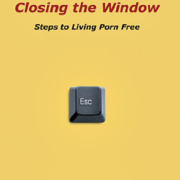
 WHY A BOOK LIKE THIS for a Christian Library?
WHY A BOOK LIKE THIS for a Christian Library?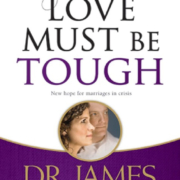
 I read Love Must be Tough (LMBT) about 20 years ago and recently reread it. Dr. Dobson, the author, is a Christian psychologist and was a host on a popular Christian radio show beginning in the late 70’s and into 2000. His book, LMBT, provides helpful direction for troubled families, and in particular married couples.
I read Love Must be Tough (LMBT) about 20 years ago and recently reread it. Dr. Dobson, the author, is a Christian psychologist and was a host on a popular Christian radio show beginning in the late 70’s and into 2000. His book, LMBT, provides helpful direction for troubled families, and in particular married couples.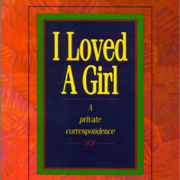
 One of the great difficulties the church faces in talking about sex is the pervasive attitude that the only real barriers to sex are age and consent. Thus the only way to sin sexually is to have sex with someone who is unwilling or underage, or to have sex with one person while there is still a commitment to another. Even then, we don’t call it “adultery,” we call it “cheating;” the same word we use for not following a diet or the rules of a game. This leads to another difficulty we face: we always seem to approach sex as a list of “don’ts” rather than as a gift God gives to the married.
One of the great difficulties the church faces in talking about sex is the pervasive attitude that the only real barriers to sex are age and consent. Thus the only way to sin sexually is to have sex with someone who is unwilling or underage, or to have sex with one person while there is still a commitment to another. Even then, we don’t call it “adultery,” we call it “cheating;” the same word we use for not following a diet or the rules of a game. This leads to another difficulty we face: we always seem to approach sex as a list of “don’ts” rather than as a gift God gives to the married.
 I like this book very much. The author begins with the story of her experience with an abusive husband, followed by involvement with men who have various sexual addictions, and how the Lord led her even when she did not know or desire it.
I like this book very much. The author begins with the story of her experience with an abusive husband, followed by involvement with men who have various sexual addictions, and how the Lord led her even when she did not know or desire it.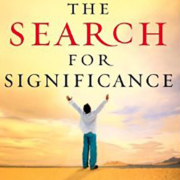
 When I selected this book for reading and review, I will honestly admit, I was out to debunk what I thought would be another book promoting humanistic philosophies of self-esteem. When I saw the title, red flags appeared. I assumed it was the kind of Christian self-help book what would promote the Laws of good works over the Gospel of Jesus’ redemption and forgiveness. Happily, I was mistaken – feeling great relief that Mr. McGee placed the sole emphasis on Christ. “…the point is clear that Christ is the source of our security; Christ is the basis of our worth; Christ is the only one who promises and never fails.” (p. 24)
When I selected this book for reading and review, I will honestly admit, I was out to debunk what I thought would be another book promoting humanistic philosophies of self-esteem. When I saw the title, red flags appeared. I assumed it was the kind of Christian self-help book what would promote the Laws of good works over the Gospel of Jesus’ redemption and forgiveness. Happily, I was mistaken – feeling great relief that Mr. McGee placed the sole emphasis on Christ. “…the point is clear that Christ is the source of our security; Christ is the basis of our worth; Christ is the only one who promises and never fails.” (p. 24)
 Porn changes your brain. The vast advances in neuroscience in recent years have uncovered the tragic results of pornography usage on the brain and body itself. Neuroscientist William Struthers explains just a few of the effects in this worthy read.
Porn changes your brain. The vast advances in neuroscience in recent years have uncovered the tragic results of pornography usage on the brain and body itself. Neuroscientist William Struthers explains just a few of the effects in this worthy read.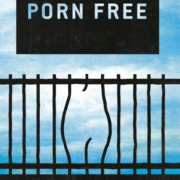
 While always good intentioned, many ministries, books, and articles designed to help Christians escape the trap of pornography are simply spiritually-packaged self-help sermons. “Porn is bad,” they say, “so stop looking at it!”
While always good intentioned, many ministries, books, and articles designed to help Christians escape the trap of pornography are simply spiritually-packaged self-help sermons. “Porn is bad,” they say, “so stop looking at it!”